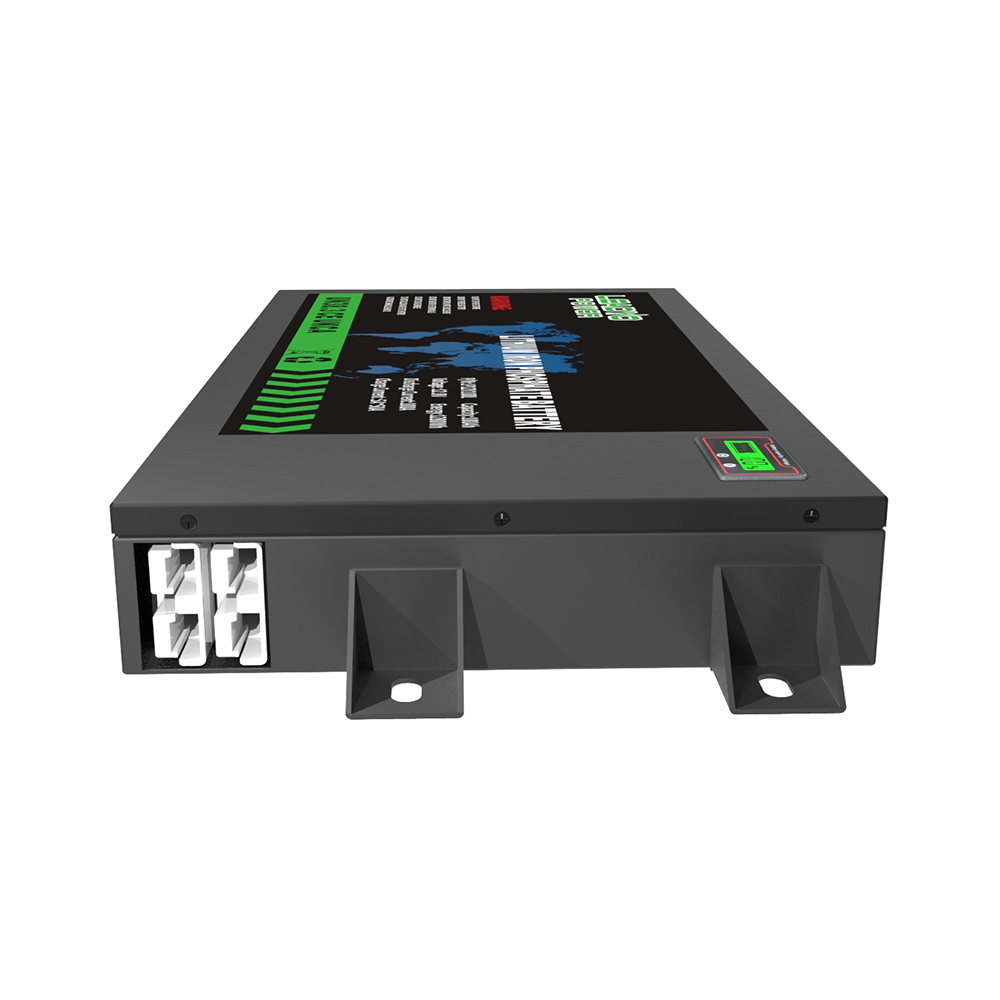Understanding LiFePO4 Batteries
Composition and Key Features
LiFePO4 batteries, also known as lithium iron phosphate batteries, have a unique composition that sets them apart from other battery types. These batteries use lithium iron phosphate as the cathode material and graphite as the anode. This combination provides excellent chemical stability and ensures consistent performance. Unlike traditional lithium-ion batteries, LiFePO4 batteries offer a lower energy density. However, they compensate for this with their durability and safety features.
You will find that these batteries excel in delivering steady power output. Their ability to maintain voltage levels over extended periods makes them ideal for electric vehicles. Additionally, they are less prone to overheating, which enhances their reliability. The absence of cobalt in their composition also makes them more environmentally friendly and cost-effective.
Safety and Thermal Stability
Safety is a critical factor when choosing a battery for electric vehicles, and LiFePO4 batteries shine in this area. These batteries exhibit high thermal stability, which means they can withstand extreme temperatures without the risk of thermal runaway. This feature significantly reduces the chances of fire or explosion, ensuring a safer driving experience.
You can rely on LiFePO4 batteries to perform well under various conditions. Their resistance to overheating and overcharging adds another layer of safety. This makes them a preferred choice for automakers who prioritize the well-being of drivers and passengers. The robust design of these batteries further minimizes the risk of damage during accidents or mechanical stress.
Longevity and Performance in EV Applications
One of the standout features of LiFePO4 batteries is their impressive lifespan. These batteries can endure thousands of charge and discharge cycles without significant degradation. For you, this means fewer replacements and lower maintenance costs over the lifetime of your electric vehicle.
In terms of performance, LiFePO4 batteries deliver consistent power output, even after years of use. Their ability to retain capacity over time ensures that your vehicle maintains its range and efficiency. This reliability makes them a practical and economical choice for electric vehicle applications. By choosing LiFePO4 batteries, you contribute to a sustainable future while enjoying long-term benefits.
Comparing LiFePO4 Batteries to Other EV Battery Types
LiFePO4 vs. Lithium Nickel Manganese Cobalt (NMC) Batteries
When comparing LiFePO4 batteries to Lithium Nickel Manganese Cobalt (NMC) batteries, you will notice distinct differences in safety, cost, and performance. NMC batteries are known for their higher energy density, which allows electric vehicles to achieve longer ranges. However, this comes at the expense of safety. NMC batteries are more prone to overheating and thermal runaway, which can lead to safety concerns.
LiFePO4 batteries, on the other hand, prioritize safety and thermal stability. You can rely on them to perform well under extreme conditions without the risk of fire or explosion. While they offer a lower energy density compared to NMC batteries, their durability and long cycle life make them a practical choice for many EV applications. Additionally, LiFePO4 batteries are more cost-effective due to the absence of expensive materials like cobalt. This affordability makes them an attractive option for manufacturers and consumers alike.
If you value safety and longevity over maximum range, LiFePO4 batteries provide a reliable solution. Their consistent performance and lower environmental impact further enhance their appeal in the growing EV market.
LiFePO4 vs. Lead-Acid Batteries
Lead-acid batteries have been around for decades, but they fall short when compared to modern alternatives like LiFePO4 batteries. Lead-acid batteries are heavier and less efficient, which can significantly impact the performance of your electric vehicle. They also have a shorter lifespan, requiring frequent replacements that increase long-term costs.
LiFePO4 batteries outperform lead-acid batteries in almost every aspect. They are lighter, which improves the overall efficiency and range of your vehicle. Their ability to endure thousands of charge cycles ensures that you won’t need to replace them as often. This longevity translates to lower maintenance costs and greater reliability.
Another key advantage of LiFePO4 batteries is their environmental friendliness. Lead-acid batteries contain toxic materials that pose risks during disposal. In contrast, LiFePO4 batteries use safer materials, making them a more sustainable choice. If you are looking for a battery that combines performance, safety, and sustainability, LiFePO4 batteries stand out as the superior option.
Enhancing EV Performance and Sustainability with LiFePO4 Batteries
Performance Benefits for Electric Vehicles
LiFePO4 batteries enhance the performance of electric vehicles in several ways. These batteries deliver consistent power output, ensuring that your vehicle operates smoothly across various conditions. Their ability to maintain stable voltage levels improves acceleration and overall driving experience. You can rely on them to provide dependable performance, even during long trips or under heavy loads.
Another advantage lies in their thermal stability. LiFePO4 batteries resist overheating, which allows your vehicle to perform efficiently in extreme temperatures. This feature reduces the risk of performance drops caused by environmental factors. Their lightweight design also contributes to better energy efficiency, enabling your vehicle to achieve optimal range without compromising safety or reliability.
Cost-Effectiveness and Scalability
LiFePO4 batteries offer a cost-effective solution for electric vehicles. Their long lifespan reduces the need for frequent replacements, saving you money over time. These batteries endure thousands of charge cycles, which translates to lower maintenance costs. Manufacturers also benefit from their affordability, as they do not rely on expensive materials like cobalt.
Scalability is another key strength. LiFePO4 batteries adapt well to different vehicle types, from compact cars to larger electric buses. Their modular design makes it easier for automakers to integrate them into various models. This flexibility supports the growing demand for electric vehicles across diverse markets. By choosing these batteries, you invest in a solution that balances cost, performance, and adaptability.
Contribution to Sustainability
LiFePO4 batteries play a significant role in promoting sustainability. Their composition avoids the use of toxic materials, making them safer for the environment. Unlike traditional battery types, they have a lower environmental impact during production and disposal. You contribute to reducing pollution by opting for these eco-friendly batteries.
Recycling practices for LiFePO4 batteries further enhance their sustainability. Many components can be reused, minimizing waste and conserving resources. Their long lifespan also reduces the frequency of disposal, which helps lower the overall environmental footprint. By supporting the adoption of these batteries, you help drive the transition toward greener transportation solutions.
Environmental Impact of LiFePO4 Batteries
Sourcing and Production Practices
The materials used in LiFePO4 batteries come from more sustainable sources compared to other battery types. Lithium iron phosphate, the primary component, avoids the use of cobalt and nickel, which are often associated with unethical mining practices and environmental degradation. By choosing LiFePO4 batteries, you support a shift toward more responsible material sourcing.
The production process for these batteries also has a lower environmental footprint. Manufacturers use fewer toxic chemicals, which reduces the risk of harmful emissions during production. This makes LiFePO4 batteries a cleaner option for electric vehicles. You contribute to a greener future by supporting technologies that prioritize eco-friendly manufacturing.
Energy efficiency during production further enhances their sustainability. Producing LiFePO4 batteries requires less energy compared to other lithium-ion chemistries. This helps reduce the overall carbon footprint of battery manufacturing. When you choose these batteries, you promote a more sustainable supply chain for electric vehicles.
Recycling and End-of-Life Management
LiFePO4 batteries excel in recyclability, making them a more sustainable choice for electric vehicles. Many components, such as lithium and iron, can be recovered and reused. Recycling these materials reduces waste and conserves natural resources. By opting for LiFePO4 batteries, you help minimize the environmental impact of battery disposal.
The long lifespan of these batteries also delays the need for recycling. You benefit from fewer replacements, which means less waste over time. When the batteries do reach the end of their life, recycling facilities can process them efficiently. This ensures that valuable materials are not wasted and that harmful substances are managed responsibly.
Efforts to improve recycling technologies continue to grow. Advanced methods make it easier to recover materials from LiFePO4 batteries. By supporting these advancements, you contribute to a circular economy where resources are reused instead of discarded. This approach aligns with the goal of creating a sustainable future for electric mobility.
LiFePO4 Batteries offer unmatched benefits for electric vehicles. Their safety features ensure reliable performance under various conditions. Their long lifespan reduces maintenance costs and enhances durability. Their eco-friendly design supports sustainability efforts, making them a smart choice for green transportation. By adopting these batteries, you help make EVs more affordable and accessible. This technology plays a vital role in advancing electric mobility and renewable energy solutions. You contribute to a cleaner, more sustainable future by choosing this innovative battery option.

 EN
EN
 AR
AR
 CS
CS
 DA
DA
 NL
NL
 FI
FI
 FR
FR
 DE
DE
 EL
EL
 IT
IT
 JA
JA
 KO
KO
 NO
NO
 PL
PL
 PT
PT
 RU
RU
 ES
ES
 TL
TL
 ID
ID
 SK
SK
 SL
SL
 VI
VI
 HU
HU
 TH
TH
 TR
TR
 AF
AF
 MS
MS
 GA
GA
 AZ
AZ
 BN
BN




